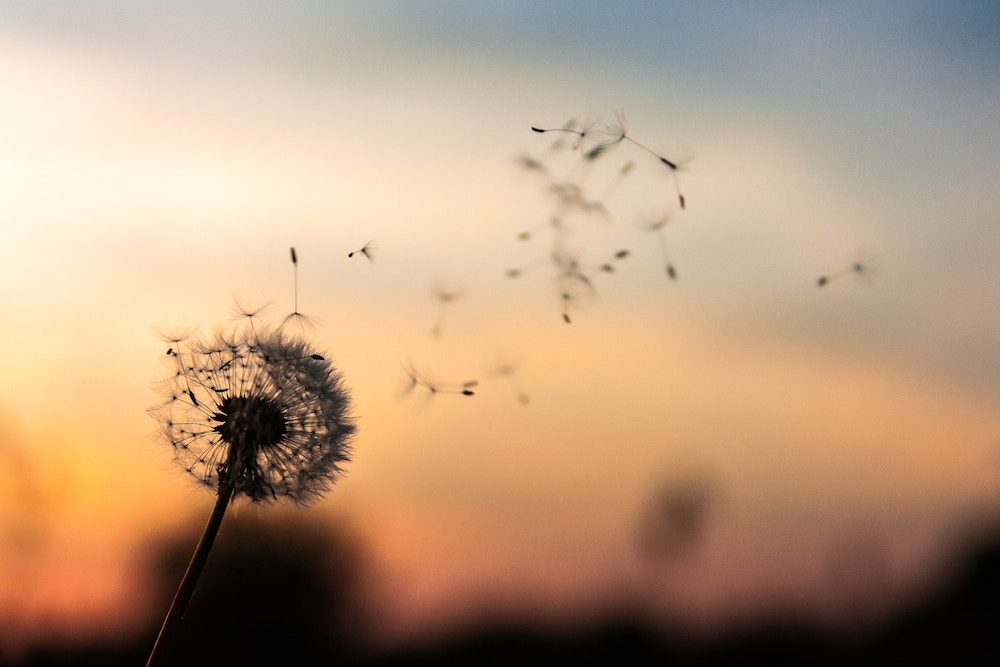If your phone the first thing you look at when you wake up and the last thing you look at before you go to sleep, here’s how to spend less time on your phone so you can sleep better and take a breath.

My phone used to be with me wherever I went. When I was working in my office? It was sitting on the corner of my desk in its usual spot. When I was driving in my car? It was in its special holder attached to my air vent. When I was lying on the couch relaxing? It was most likely in my hands (after all, what was relaxing without my phone to help me do so?) or else on the coffee table right beside me. When I was in bed? It was on my nightstand in its other usual spot, on a special “iPhone pillow” that I’d bought just for it. And the list continues.
Somewhere in the midst of becoming totally and utterly attached to my personal handheld device, I began to sense that something was amiss in my life. I was feeling restless and unfulfilled a lot of the time. I noticed that my attention span was virtually nonexistent, my memory didn’t seem to be as sharp as it used to be, and I often found myself daydreaming about what life was like back in my early twenties before cellphones came on the scene. Life had seemed … simpler somehow. Richer, and more fulfilling. I knew something needed to change, but I didn’t know how to begin or where to start.
And that’s when a friend of mine mentioned in passing one day a book he’d read recently: How to Break Up With Your Phone by Catherine Price. I was immediately intrigued and knew I had to read this book, which I did. Fast forward three months and I now spend about 15 minutes a day on my phone as opposed to the 3+ hours I formerly spent.
If you’re in this place – if you know that something about your relationship to your phone needs to change but you’re not sure where to start – I hope that one of the following five ideas will show you how to spend less time on your phone, and allow you to feel better.
Keep your phone in the same spot when you’re at home.
Once I set the intention of becoming less tethered to my phone, I decided to keep my phone in the same spot in my house whenever I was home. My hopes in doing this would be that my phone would become less of a companion and more of a … phone. (After all, can you imagine if back in pre-cellphone days you’d carried your landline telephone around the house with you? People would have thought you were nuts. With few exceptions, landline telephones always stayed relatively stationary within a home.)
For me, the spot that made the most sense was on top of the welcome bench I have just inside the front door in my condo’s foyer. When I’m home, there it sits and there it stays. When I’m upstairs in my office working or in the living room relaxing and the phone rings, I either get up and walk over to see who’s calling – or more likely I just let the “machine” get it and stay happily engaged with whatever I’m doing. After all, I can always see who called later.
Delete apps that you could just as well view on your computer.
One of the most helpful things I did when changing my relationship with my phone was deleting all apps from my phone which could just as easily be accessed on my computer. This predominantly meant social media apps like Facebook, LinkedIn, and the like. I found that once I limited myself to accessing these sites only from my desktop computer, my phone time reduced dramatically without changing anything else.
Generally, the only apps I keep on my phone now are tools – tools that significantly help me in a specific way when I am out on the go. For example, a maps app allows me to navigate to an unfamiliar place, a parking app allows me to pay from the car when it’s pouring rain, and a taxi app allows me to quickly call a ride when I need one. If an app on my phone isn’t a tool that helps me in a specific way and makes my life significantly easier? I delete it.
Download a tracking app.
Have you ever guessed how much time you spend on your phone each day, and then found out the actual number? More often than not, our numbers are pretty far off. Downloading a tracking app to find out how many times you’re picking up your phone each day, how many hours you’re spending on it, and which apps you’re using most, can be downright enlightening.
Ask yourself this one powerful question.
One of my favorites lines from Catherine Price’s book mentioned above is a simple but powerful question that she encourages readers to think about long and hard before embarking upon a change in the relationship with their phone. The question is: What do you most want to pay attention to in your life?
Our attention is perhaps the most powerful thing we have to spend in our lives, and our phone has an unparalleled ability to rob us of it. Answering this question allows us to become more intentional about how we’re spending our attention. For me the answer was easy: I want to be fully present with the people I am with in my life, I want to pay attention to nature and the beautiful world around me, and I want to be learning and growing as a person every day. What’s your answer?
Get a “light” phone.
For some people, a phone that literally can do fewer things is a great solution. Enter the Light Phone, a phone designed to be used as little as possible (their tagline is actually “tools not feeds”). You can tether your Light Phone to your actual phone, enabling you to leave your smartphone at home and take your Light Phone with you on the go. The Light Phone can include things like calls, texts, directions, and a calculator, but it will never have items like social media, news, or advertisements. It’s about the most minimalist thing you can get – next to a flip phone.
A happy ending.
In closing, at risk of sounding like someone fabricating a “too good to be true” happy ending, I now feel happier, more fulfilled, and as though I’ve gotten in touch with a part of myself and with a part of life that I forgot even existed. Activities I’ve always loved but that had lost nearly all presence from my life have returned: cooking dinner at home, reading all sorts of fiction and non-fiction books, working with arts and crafts, playing my guitar, and other things. Additionally, without the distraction of my phone, I’ve been able to focus deeply on my work in a way I forgot was possible, and I am now more productive than I have been in years.
How to spend less time on your phone is really all about remembering the GREAT reward you’ll receive by doing so.
So, how will you start your journey? What will be your first step? Tell us in the comments below.
For more reading on reducing the impact of technology in your life, you also might enjoy Unplug Yourself: 3 Tips to Feel More Peaceful or How Technology May Be Ruining Your Sleep.



SoOoOoo grateful I got your recommendation for this book!
Liza and I’m so grateful that my bass player mentioned it to me at rehearsal! 🙂
Pingback: “Should I Delete My Facebook?” - The 3 Signs It’s Time to Do It
Pingback: The Secret to Avoid Becoming Too Busy - Ellanyze 2024